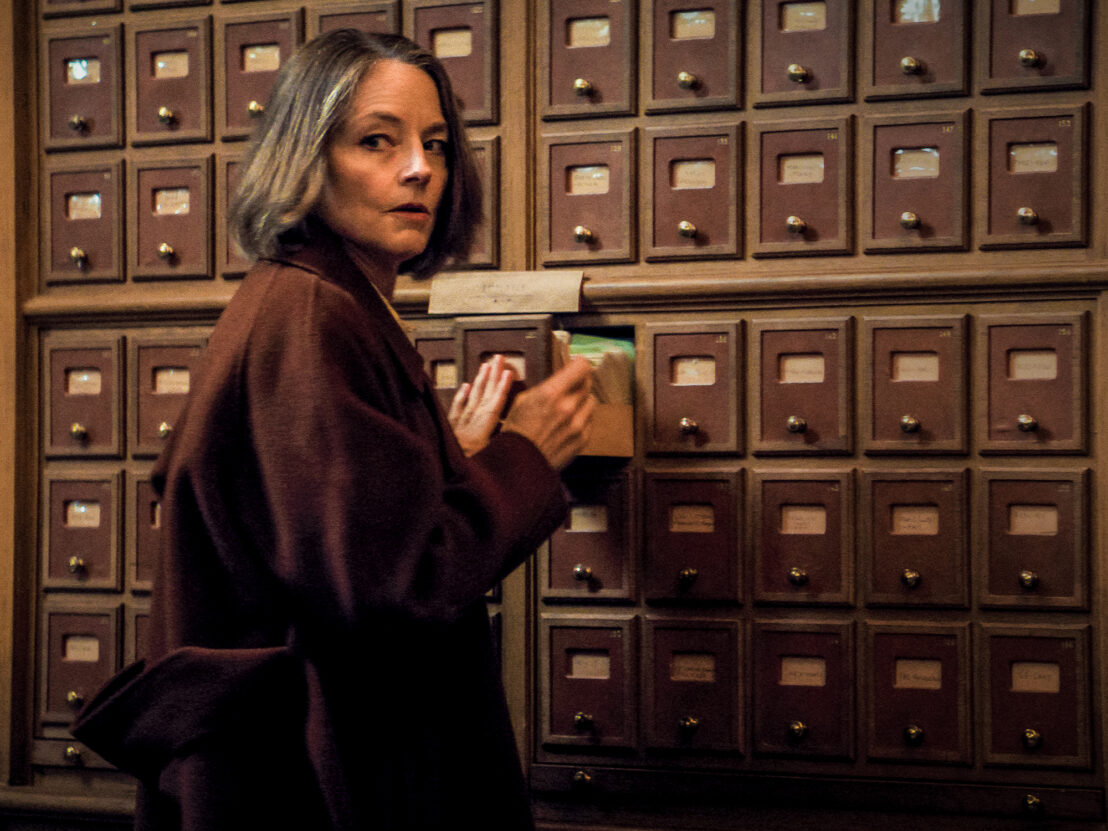
Jodie Foster stars as a psychiatrist trying to solve a potential murder in Rebecca Zlotowski's underwhelming drama.
The sight of Jodie Foster speaking fluent French is the most engaging element of this limp and convoluted psychodrama from the usually reliable Rebecca Zlotowski. Foster plays a psychiatrist named Lillian Steiner who we meet just before she storms upstairs to tell her neighbour to turn down the volume on ‘Psycho Killer’ by The Talking Heads.
Soon she receives a call from the daughter of an MIA patient to say that Paula (Virginie Efira) is dead. Is a psycho killer to blame? Or is the existence of a killer pure psychosis? Our process of discovery is as uninspired as the opening song choice.
Lillian is a confident American expat turned bourgeois Parisian whose status and poise is expressed through her lifestyle –the staircase she storms up is a gorgeous spiral with wrought iron balustrades – and the brisk handling of the men in her life. She is as disinterested in son Julian’s new baby as she is dinner invitations from her ex-husband (Daniel Auteuil) – although the latter’s profession as a doctor comes in useful when she finds that her eye is involuntarily weeping. A hypnotist tells her that she is in deep mourning, while Lillian sees it simply as a physical annoyance.
Lillian discovers the hypnotist via an aggrieved patient who has spent eight years and €32,ooo on the couch trying to quit smoking, only to achieve this in one session and €50 with a woman who walked him through his dreams. “Don’t mistake scepticism for intelligence,” the hypnotist tells Lillian, and although Lillian leaves with a parting barb, the door has already opened to a parallel life in Nazi Germany in which she and Paula were lovers who played in an orchestra together. Now convinced of a historic bond with Paula, Lillian ropes in her ex to play detective in what she suspects (based on scant evidence) is a case of murder.
The issue is not so much the varied machinations, for labyrinthine threads are par for a murder mystery, as it is the lack of tension surrounding set pieces. Whether Lillian is stalking Paula’s husband (Mathieu Amalric) or having her apartment ransacked, the tone remains perky and untroubled. Personal relationship decisions are made without so much as an italicisation from Zlotowski’s film language. Flashbacks to sessions with Paula are full of rambling details that have not been sufficiently well seeded to land as revelations.
An unwieldy script fails to account for the impact of switching lanes from sedate psychiatrist to intrepid detective or the emotional scope of reuniting with an ex. The mystery itself is powered by prosaic clues like a hair straightener. Zlotowski is much more interested in small character details that arise in the course of ordinary life than she is in the big reactions that follow dramatic incidents. There is more intricacy in the depiction of Jewish mourning than in the sweep of the story. Consummate pro that she is, Foster finds small moments to bring to life and Auteuil is afforded some charming moments, however the rest of the cast is frittered away in a forgettable flick that is much more filler than killer.
Published 21 May 2025